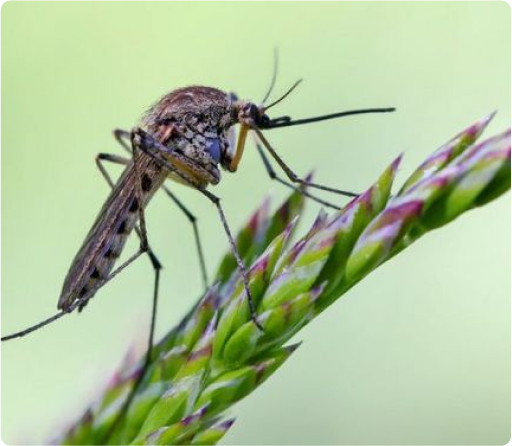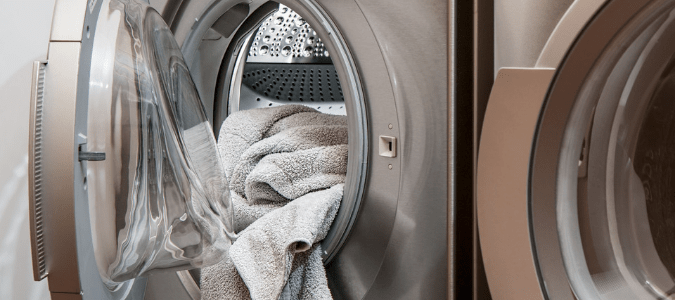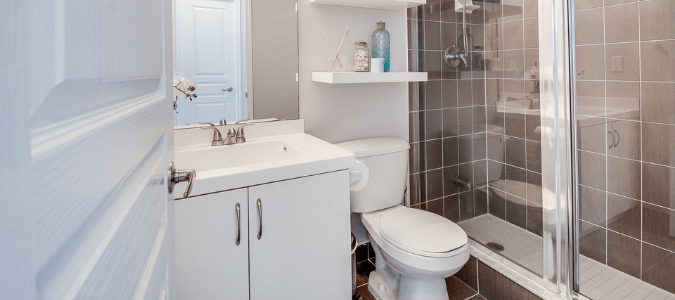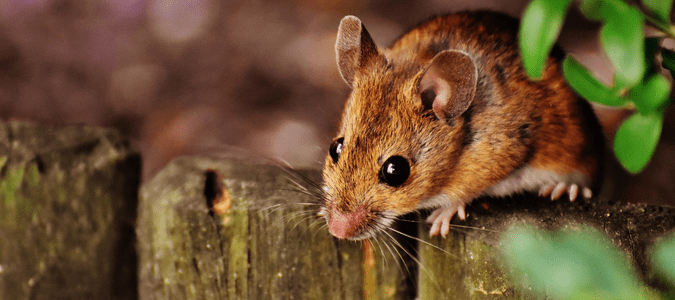
For many homeowners, their garden is a prized part of their home. They tend to it regularly and do their best to keep pests away. But did you know that some animals can encourage your garden to grow? Having butterflies, birds and lizards close by can help your plants reach their full potential. However, there is one creature you should never welcome in your garden–mice.
Mice can cause extensive damage to a garden. They can even make their way into your home. All they need is a dime-size hole to come into your living space.
If you have mice problems, here are some tips to help drive them away. But the best solution is to get the help of a professional. A pest control specialist has the tools and expertise to restore peace in your home and garden.
Mice in the Garden? Keep Them Away With These Tips
If you see mice invading your garden, here are some ways to keep them away from your beloved garden.
LIMIT ACCESS TO FOOD AND WATER
Mice are resourceful pests that will feed on just about anything. Scattered bird feed, open garbage cans, pet water bowls and leaking hoses are all attractive to them. Cut off their access to food by storing grains, bird feed and pet food in thick plastic boxes or metal containers. In addition, bring in leftover pet food before you sleep at night.
ELIMINATE POTENTIAL NESTING SPOTS AND MATERIALS
It’s also important to eliminate possible hiding places. These include piles of leaves, stacks of firewood and clutter in your yard. It can help to conduct a cleanup project around your house, clearing everything within a foot of your home’s exterior. In addition, remove straw, fluffy mulch and similar materials from your garden because mice can use them to build their nests.
HIRE A PEST CONTROL SPECIALIST
If you have a large mouse infestation in your garden, it might be too hard to handle on your own. Pest control specialists know effective methods to control these annoying pests. They can also put measures in place to prevent future infestations.
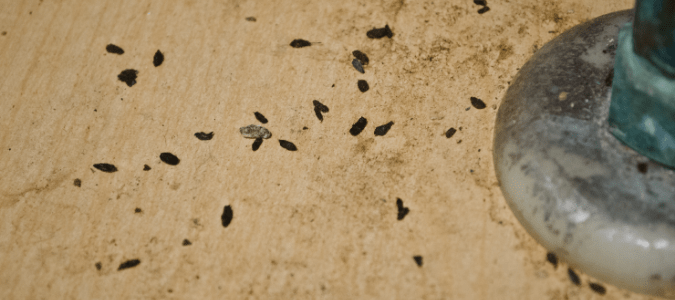
Mouse Versus Rat Droppings: How Do You Tell Them Apart?
Mice and rats are elusive pests, often only coming out at night to feed. That can make it harder for homeowners to know if they have a rodent problem. If you’re unsure whether you have these creatures lurking in your home, keep a lookout for droppings. Droppings are a clear confirmation of their existence. You’ll likely spot them near food sources like the pantry and kitchen cabinets.
It’s helpful to know how to differentiate between rat and mouse droppings. That way, you know what you’re dealing with and can use the correct control methods. Here are some distinctions to take note of.
SHAPE
Shape is a quick way to tell mouse and rat droppings apart. Rat feces have rounded ends, making them look like coffee beans or raisins. Meanwhile, mouse droppings have tapered ends like rice grains.
SIZE
Another easy way to distinguish between the two is size. Rats leave behind significantly larger droppings, similar to the size of a coffee bean or a small raisin. They’re usually half an inch or three-quarters of an inch long. Mouse feces are smaller, usually measuring only half an inch. Their size is comparable to a sprinkle.
COLOR AND SHINE
Rat poop is often black and shiny, while mouse feces are brown and matte. However, these traits aren’t noticeable unless you place the two droppings next to each other.
SIGNS YOU HAVE RATS OR MICE IN YOUR HOME
Aside from droppings, there are other telltale signs of a rat or mouse infestation. If you think you have a rodent problem at home, here are some clues that can confirm your suspicions.
YOU SMELL A BAD ODOR
If you can’t spot any droppings but can smell a foul odor wafting through your home, that can indicate a rodent infestation. Their urine smells like stale ammonia. It may not be too noticeable if you only have a couple of rodents at home. But the smell will intensify as their population grows. The foul odor might also be coming from a dead mouse or rat. This unpleasant sour smell can linger for weeks.
YOU SEE BITE MARKS, NESTS AND RUNWAYS
Rodents chew on anything, including drywall, cardboard boxes, electrical wires and plastic. If you see bite marks or holes in various objects around the house, take that as a sign that rodents are nearby. The larger the bite mark, the bigger the rodent that left it.
Rodents are resourceful creatures that can build nests out of practically anything. If you spot pieces of paper, fabric and other organic matter in a pile, it’s likely a mouse or rat nest. There might be droppings nearby or bite marks on the materials.
Rodent runways are another visible sign of a rodent infestation. Mice and rats are creatures of habit that use the same paths to get around your home. You might see oily smudge marks along walls and baseboards from rodents traveling along usual pathways.
YOU HEAR SCAMPERING AND SCRATCHING
Mice and rats try to be as discreet as possible. But they can’t help making noise when they move around your home at night. They’ll scamper along hallways and scratch the floor. You might even hear them burrowing inside your walls.
YOUR PETS ARE ACTING STRANGE
Pets can sometimes pick up on the signs of a rodent infestation. If you notice your pet seems on high alert, or investigating certain areas like corners and crevices, it could mean you have rodents in your home. You may even notice your dog and cat pawing, scratching or digging at walls and floors.
Contact a pest control service if you see or hear these signs of rodents. Pest control professionals are more equipped than homeowners to deal with rodent infestations. They can get to work on controlling these pests.
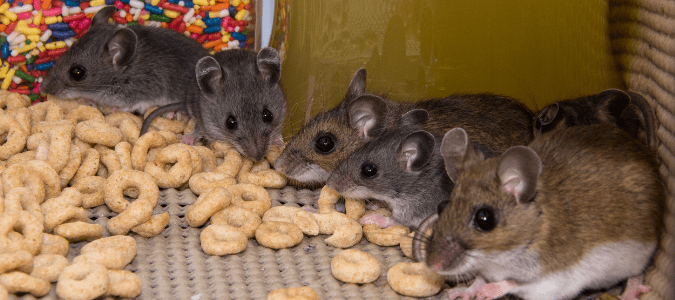
Can Mice Chew Through Plastic?
Mice may be small creatures, but don’t underestimate the power of their teeth. They can gnaw through almost anything, including wood, rubber and plastic. That’s why keeping food in its original packaging won’t keep it safe from mice. They can easily get through the packaging and enjoy the food for themselves. Here are some tips to make your home less appealing to these scavengers:
- Store food properly. Use glass jars, coffee tins and airtight containers to store your food items. Rodents find it harder to chew through these materials.
- Clean up after meals. Store leftover food immediately and clean spills and crumbs.
- Remove access to water. Eliminate any standing water in cups, glasses and water cooler basins.
- Keep the garbage off-limits. Seal your trash cans to prevent rodents from rummaging through them.
- Block entry points. Look for holes and gaps around your home where rodents can enter and fill them with steel wool.
CONTACT A PROFESSIONAL SERVICE FOR RODENT INFESTATIONS
Whether you have mice in the garden or inside your house, you can trust licensed pest control specialists to handle the problem. The professionals know how to get rid of mice outdoors and will provide the most effective solution to control these pests in your home.
BEST Can Help Get Rid of Pests
If your dryer smells, trust the appliance repair specialists at BEST Home & Commercial Services to get to the bottom of it. Whether the unpleasant odor is due to lint buildup, a kinked vent hose, an animal in the vent or another problem, our team can properly diagnose any dryer or washer problem and fix it. They can also help with other issues, like if your dryer won’t start.

